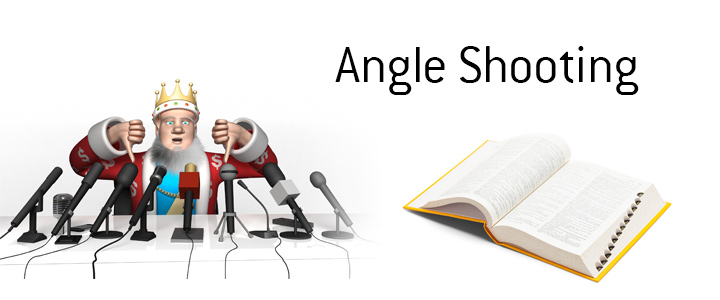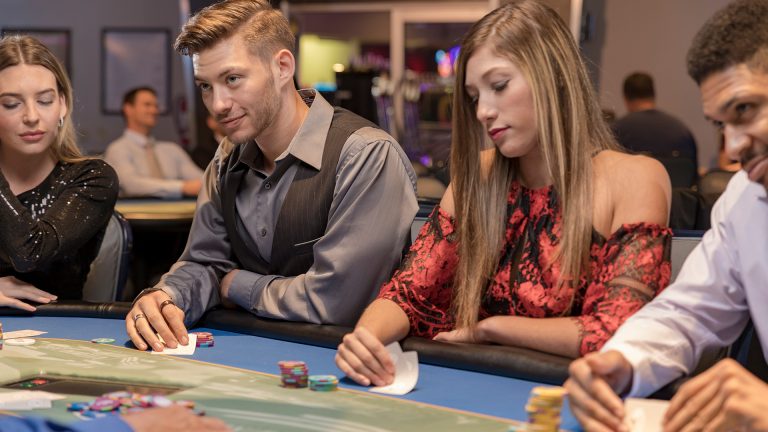Angle Shooting Poker Meaning
Ante definition is - a poker stake usually put up before the deal to build the pot. How to use ante in a sentence. Angle Shooting Poker Meaning, qt slot lambda, groupe casino siege social telephone, casino poker room promotions. If you raise your camera a bit higher, this angle can create a perception of freedom. Because shooting from high up makes people feel like flying. You often see movies show epic shots of actors from a crane. Use a Bird’s Eye View Angle With a Drone. Ready to take your high angle shots to new heights? Consider using the bird’s eye view. Angle shooting isn’t just confined to games of poker between friends, but can occur in large, well-organised tournaments held in respectable casinos – although such incidents are quite rare. Angle shooting in online games usually requires a greater degree of premeditation and that's why players engaging in any kind of fishy (no pun intended) behavior are usually considered cheaters and not angle shooters. That being said, there are examples of behaviors that are frowned upon but not strictly forbidden in the online poker world.
You might assume that when it comes to poker anything goes. Isn’t it all about bluffing and lying? Perhaps, but there are of course still a set of rules, and to break these would constitute cheating. But, there are inevitably also some blurred lines, a few opportunities for manipulation. And there are things you definitely shouldn’t do but which are just about within the rules of the game – if not the spirit of it.
It’s fairly easy to give definite examples of cheating in poker. You can’t look at your opponent’s cards to gain an unfair advantage (though if they are careless enough to give you an inadvertent glimpse, well it’s not your fault, is it … ) or gain access to any information about their cards without their knowledge (for example by having a confederate stand behind your opponent and signal to you, or using a deck of marked cards).
Similarly, there should be no collaboration between players, or between the players and the dealer. Generally speaking, this is only likely to happen in “live” games (as opposed to online games). Casinos and card rooms do their best to stamp out any such attempts to cheat.
Manipulation
Angle Shooting Poker Meaning Dictionary
Poker is a game that revolves around deception. So use of various psychological techniques that help you ascertain information from your opponent about their hand are run of the mill. Some, for example, observe their opponent’s body language and try to use this information to gauge the strength of their adversary’s cards. When an opponent looks away from the table for example, this may indicate an extremely good hand.
Other players concentrate on using “speech play”, talking to their opponent in order to trick them into giving responses which reveal information about their hand. A good player will use a combination of both techniques, observing players when they are relaxed to gauge their “normal” behaviour (creating a “baseline”), and then looking for deviations from this when they are playing against them directly. Behaviours by an opponent which might give away the strength of their hand are called “tells”.
It’s also within the rules to try to induce tells by putting your opponent under some psychological stress (though physically abusing your opponent is generally considered a no-no). A good opponent, however, may attempt to exhibit “false tells” to fool their opponents, and again this is perfectly acceptable and within the rules.
.jpg)
The grey area

Somewhere in between the legal and the illegal there’s a grey area that some consider to be cheating and some consider to be perfectly acceptable. Such actions are referred to as “angle shooting”. This is where players exploit weaknesses within the rules to gain an unfair advantage.
An example. Imagine all of the betting is complete and the time has come to show your cards. Player One, who believes that they have a weaker hand than their opponent (Player Two) might falsely declare their hand without showing it, for example claiming that they have a flush, in the hope that Player Two has a weaker hand and will just “muck” their hand (discard it without showing). Player One will then show their hand (a legal requirement to win a hand at showdown) and claim that they were only joking about having a flush; but because Player Two has thrown their hand away, they are no longer in the game.
All of the chips will go to Player One regardless of whether or not they have the strongest hand. Technically, Player One has not done anything wrong (some players do joke about these things), but such actions fly in the face of the spirit of the game of poker.
But when large sums of money are at stake, some players will stop at nothing to win. Angle shooting isn’t just confined to games of poker between friends, but can occur in large, well-organised tournaments held in respectable casinos – although such incidents are quite rare. Angle shooting can be particularly effective against novice, or unwary, players.
Deception is part and parcel of poker – and for many it is one of the main attractions of the game: there is nothing more satisfying as a poker player than when you successfully bluff an opponent. Cheating your opponent is unacceptable and against the rules. And as to the grey area in between? That’s something you’ll have to talk out with your conscience.
Poker is an extremely competitive discipline and where there's a stiff competition and a high enough reward, there's always an incentive to go beyond what's legal in order to gain the advantage. While very few players will resort to cheating many more might be tempted to bend the rules slightly when the opportunity presents itself.
Angle Shoot Poker Term
According to the old Latin saying 'occasio facit furem' - 'opportunity makes a thief' and given the age of this maxim, it's pretty safe to assume that a loose relationship with the rules is simply a part of human nature. That's why we should always be mindful of the ways our opponents might want to bend the rules to their advantage and we're going to explore this subject below.
Ambiguous Actions
This is pretty much what most live angle shots boil down to. Without the rigid bounds of software policing the extent of player creativity, said creativity can run rampant, often resulting in displays of behavior that go beyond what's accepted by other players. In a live poker environment - especially a more casual one like a home game without a dedicated dealer - players will often play with the structure of betting and use ambiguous behavior in order to create situations that might benefit them. This can happen at all levels of play from a kitchen table to an EPT event as illustrated in the example below:
In this scenario, Ivan decided to make a deliberate mistake. He used calling chips while announcing a raise knowing that he would be required to make one, no matter what the chips or his remarks about supposed language barrier would indicate. He used the rules to appear weak and while it wasn't strictly prohibited the reaction of commentators, other players and even the floorman (who decided to rain on Ivan's parade by exposing his little ruse) were a clear indicator that this kind of behavior isn't really welcomed in the poker world. The example of Ivan Freitez is so great because it showcases how creative live angle shots can get. Players can conceal information that they shouldn't and combine actions that they aren't supposed to.
Being a Jerk
Knowing that live angle shooting methods are so numerous that we couldn't possibly list them all, we should focus on another universal behavior, that encapsulates many of them. Live poker is very much a social experience and the extent to which players are allowed to interact with each other is vast. Some players are very talkative, others prefer to play poker in near silence and there's also a lot to be said about colorful table banter being attractive for the fans of the game. Poker world has its own rogue's gallery of charming troublemakers who aren't above tapping the proverbial glass and engaging in various types of controversial behavior at the tables. Players like William Kassouf, David 'Viffer' Peat, Phil Hellmuth or Tony G (to name a few) are both loved and hated by many.
The popularity of the latter sort of reaction to the aforementioned player's antics seems to indicate that they often cross the line of what's acceptable and what's not acceptable at a poker table. Phil Hellmuth going on a rant about being able to 'dodge bullets' might be slightly annoying but it isn't exactly unforgivable. On the other hand, shouting and berating other players might be. While all poker players should arm themselves with a certain amount of thick skin and sense of humor, we shouldn't be forced to suffer the antics of jerks. There's a fine line between 'tapping the glass' and 'rocking the boat'. Once the situation gets visibly uncomfortable for most players it should be treated like any other angle shooting attempt.
Seating Scripts and Similar Software
Angle Shooting Poker Meaning Pdf
Online players can't really rely on the ambiguity of the setting in order to make their angle shooting attempts. Angle shooting in online games usually requires a greater degree of premeditation and that's why players engaging in any kind of fishy (no pun intended) behavior are usually considered cheaters and not angle shooters. That being said, there are examples of behaviors that are frowned upon but not strictly forbidden in the online poker world. Most of them revolve around the use of some sort of an auxiliary poker software.
There are programs out there that aren't very well known or widely used by the majority of the player population but they also aren't banned by poker rooms - at least not all of them. While just about every poker room out there bans heavy hitters like bots (though, to be completely honest, not every poker room is equally diligent in their attempts to catch their users) seating scripts and various other table selection apps aren't always strictly prohibited even though they provide a very small percentage of players with a relatively large advantage over player's who aren't using this kind of software.

Ghosting
Angle Shooting Poker Meaning List
Lastly, let's talk about angle shooting opportunity that was introduced to the poker world fairly recently with the increased popularity of Twitch.tv streaming. Poker broadcasters now run the risk of exposing their hole cards to other players in the game, who aren't above engaging in so-called 'ghosting'.
Ghosting is essentially a practice of tuning into a stream of a player that we're playing against in an online game. Twitch streamers usually broadcast their session with a 3 to 5-minute delay in order to counteract this practice, but regardless of that the attempt to learn someone's hole cards by watching their stream is frowned upon by the majority of the players and fans alike.